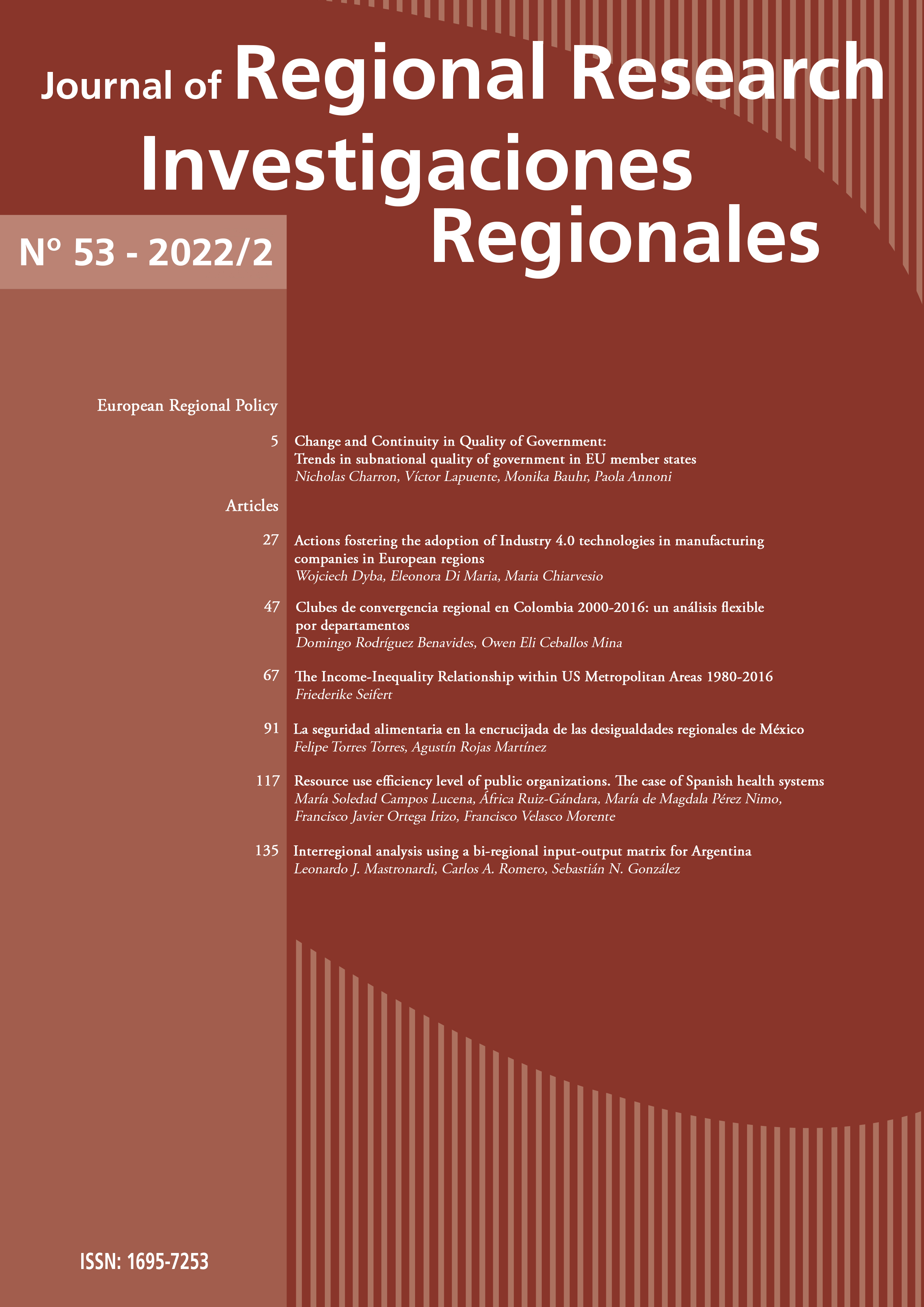Change and Continuity in Quality of Government:
Trends in subnational quality of government in EU member states
DOI:
https://doi.org/10.38191/iirr-jorr.22.008Keywords:
Europe, regions, quality of government, corruption, Covi9-19, time series, measurementAbstract
Despite massive investments, studies suggest that anticorruption efforts often times fail and that countries and regions with historically deficient quality of government tend to be stuck in a vicious cycle of high levels of corruption and inadequate public service delivery. However, this study suggests that despite the stickiness of subnational quality of government, regional quality of government does shift over time. Using the 2021 European Quality of Government Index (EQI), and comparing the results to previous rounds of this survey, we show that there has indeed been noticeable shifts in the regional level of Quality of Government both within countries and across time. Overall, we find a slight increase in the perceived quality of government of European regions compared with 2017. However, some regions have evaded the positive trend, most notably in Poland and Hungary, whose response to the pandemic – probably not coincidentally – has involved important infringements of democratic rights and institutions. These changes in Quality of government call for a close mapping of the trends within countries and across regions and a focus on their determinants. To this end, the paper also serves as an introduction to the use of 2021 European Quality of Government (EQI) index, which is the most comprehensive survey to date to measure perceptions of subnational quality of government with a total of 129,000 respondents in 208 NUTS 1 and NUTS 2 regions and all EU 27-member state countries.
Downloads
Published
Issue
Section
License
Aquellos autores/as que tengan publicaciones con esta revista, aceptan los términos siguientes:
En el momento de aceptar la publicación de sus artículos en Investigaciones Regionales / Journal of Regional Research, los autores acceden a utilizar la licencia Creative Commons CC BY-NC. IIRR/JRR es una revista abierta que permite a los autores retener el máximo control sobre su trabajo. Los autores aceptarán utilizar la licencia Creative Commons Attribution-NonCommercial. Esta licencia permite a cualquier persona copiar y distribuir el artículo con propósitos no comerciales, siempre y cuando se atribuya adecuadamente la atribución del trabajo a la revista y a los autores.

